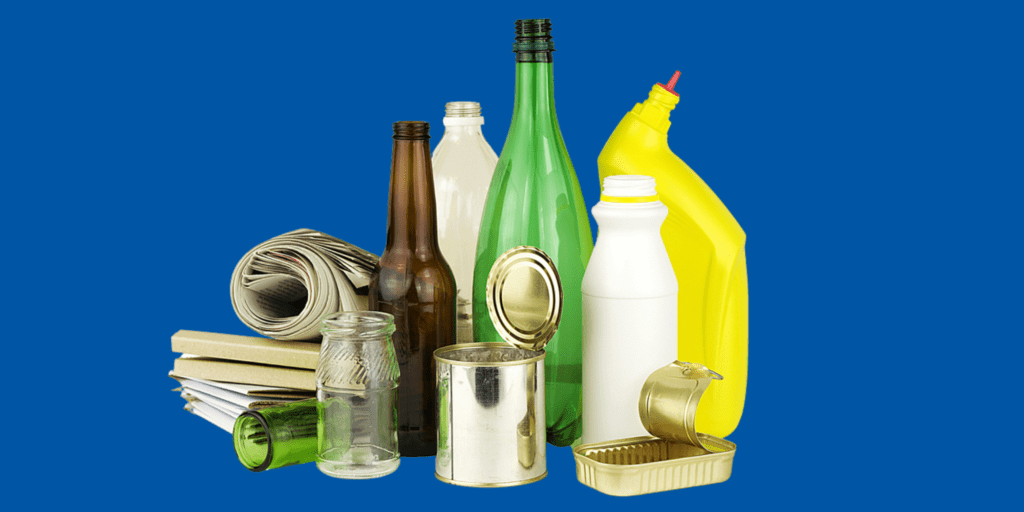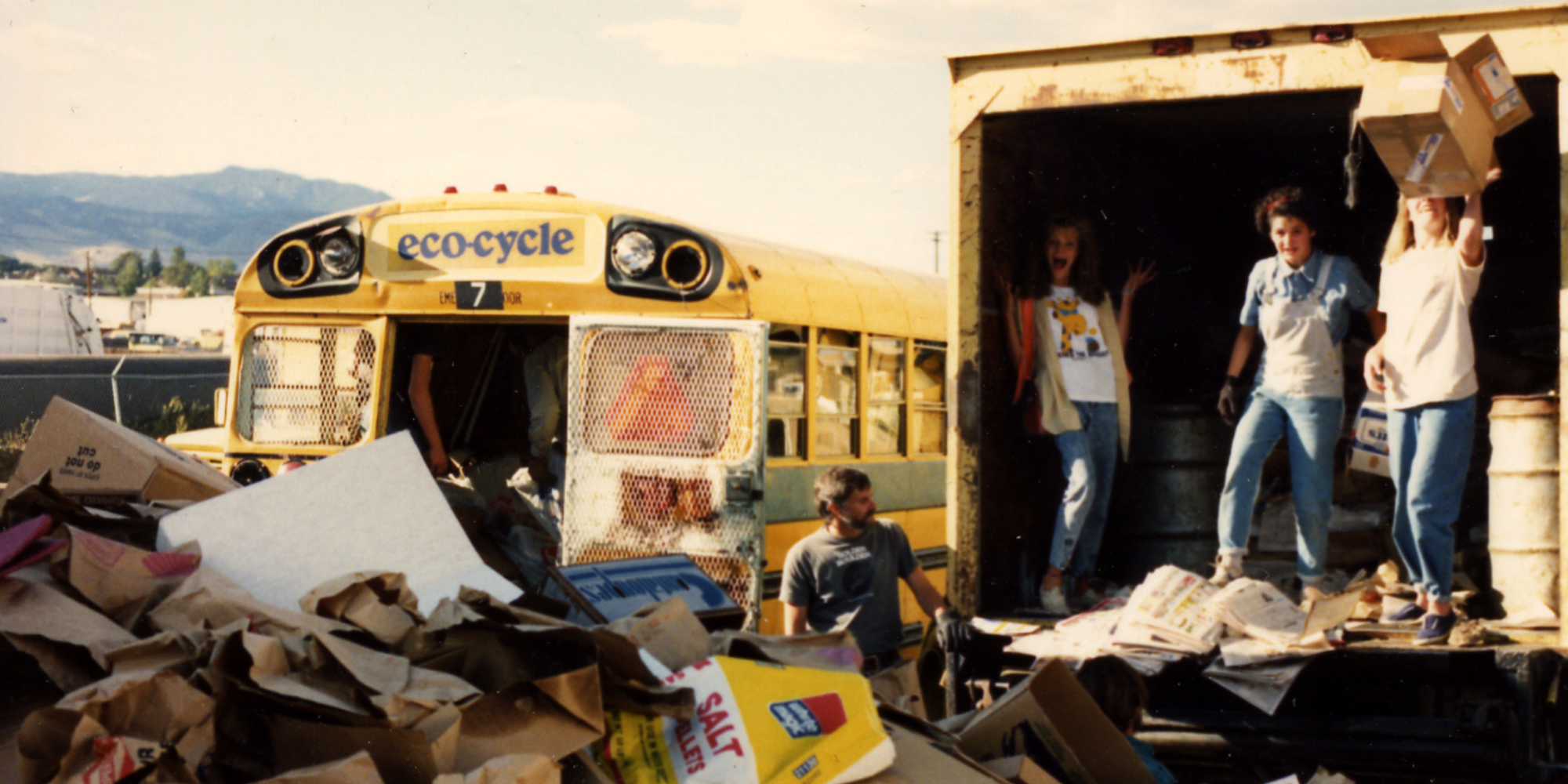Strengthening Recycling for a Healthier People and Planet
Looking back to the origins of Earth Day fifty-five years ago, Eco-Cycle reflects on recycling then vs. now, and looks toward a future when Colorado’s EPR laws are in full effect, additional Producer Responsibility organizations abound, and the proposed battery stewardship bill gets a recharge.

On April 22, 1970, twenty million Americans took to the streets for the very first Earth Day, demanding action on environmental degradation. Recycling became a significant aspect of the movement, with community-led recycling events inviting people to bring in glass, paper, and other recyclables for collection.
It’s no surprise that recycling played such a central role early in the environmental movement. Recycling is more than a waste solution—it’s a way to restore a more harmonious relationship with the planet and protect the health of communities.
Despite public support for recycling, recycling systems across the US have been underfunded and under-utilized for decades. Thankfully, new policies are on the rise—including in Colorado—that improve access, increase efficiency, and ensure that recycling actually works the way it’s supposed to.
Colorado’s Producer Responsibility Program for Paper and Packaging
Colorado’s recycling and composting rate has hovered around 15% for years, less than half the national average of 32%. But change is coming!
Colorado’s new Producer Responsibility law for packaging and paper will make recycling free for all Coloradans when it is fully implemented in 2026. Under this law, producers will be held accountable for managing the end-of-life disposal (including recycling) of their products. Beyond expanding recycling access, the policy offers key benefits, including:
- Encouraging manufacturers to design more sustainable, less toxic, and easily recyclable packaging and products.
- Shifting recycling costs from individuals and local governments to producers.
This law applies to all consumer-facing packaging, including:
- Bottles, cans, containers, boxes, and mailers
- Printed paper
- Food service packaging
A standardized statewide list of recyclable materials will also be established, ensuring consistent recycling guidelines across Colorado in 2026.
A Multi-State Producer Responsibility Program in Action
In addition to the upcoming Producer Responsibility Program for Paper and Packaging, Colorado has an existing Producer Responsibility law that mandates paint recycling. Rather than leaving the disposal of leftover paint up to the public, paint stewardship laws require manufacturers to take the lead. Launched in Oregon in 2009, PaintCare is a nonprofit that helps paint producers manage unused paint responsibly. Since Colorado joined the program in 2015, residents have gained access to hundreds of convenient drop-off sites, keeping millions of gallons of paint out of landfills and out of our waterways.
How does this Producer Responsibility program work? A small fee added to every new can of paint covers the cost of collection and recycling—shifting the burden away from taxpayers. Today, PaintCare operates in 11 states, including Colorado, California, Minnesota, and most recently, Illinois. It’s a powerful example of how smart policy can protect the planet and make recycling simple for everyone!
On the Horizon: Battery Recycling Stewardship
This year, Eco-Cycle partnered with Senator Lisa Cutter and Representatives Kyle Brown and Rebekah Stewart to champion Senate Bill 25-163—a groundbreaking proposal to create a Producer Responsibility program for small- and medium-format batteries, including button cells, AAs, e-bike, and power tool batteries. The proposed bill would have required producers to pay for battery collection sites across the state so that the valuable materials in the batteries can be conveniently and safely collected and recycled back into new batteries.
Unfortunately, SB25-163 cannot be passed this legislative session, but we are urging legislators to consider Producer Responsibility for batteries in the next session, as it is critical to solving multiple environmental and safety issues, including:
Recovering Valuable Materials
Rechargeable batteries contain lithium, an essential material powering the clean energy transition. But extracting lithium comes with a steep environmental cost. Recycling it reduces the need for new mining and keeps toxic materials out of the waste stream.
Preventing Fires and Protecting Worker Safety
Improperly disposed-of lithium batteries are a leading cause of fires in recycling and waste operations, with Colorado seeing a 41% increase in battery-related fires in the past five years. These fires pose serious risks to workers and can ignite in hauling trucks or on facility floors, driving up recycling and waste management costs.
The Future of Producer Responsibility
It’s clear that real, lasting change happens when responsibility for sustainable resource management is shared. By holding producers accountable, we’re not just improving recycling—we’re reimagining our entire relationship with waste.
- Keep up-to-date on Zero Waste legislation—sign up here to receive policy updates from Eco-Cycle straight to your inbox!



























